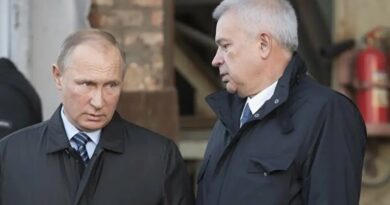Bulgaria in NATO: A 20-Year Retrospective
Twenty years after joining NATO, Bulgaria faces a new security landscape. Idealism has given way to pragmatism, and the need for greater contribution and self-reliance within the Alliance has become paramount. Overcoming Russia’s lingering influence and investing in military modernization are crucial steps for Bulgaria to ensure its place in a secure Europe.
Bulgaria’s accession to NATO in 2004 marked a pivotal moment in its history, signifying a decisive shift towards Euro-Atlantic security. However, the initial idealism surrounding membership has undergone a necessary evolution in the intervening two decades. Successive governments have grappled with balancing burden-sharing and reaping the security dividends offered by the Alliance. While challenges and occasional missteps have marked the path, Bulgaria’s commitment to NATO remains unwavering.
The recent emergence of a Eurosceptic party advocating for NATO withdrawal does not alter this reality. This fringe group remains confined to the margins of Bulgarian politics.
From Idealism to Pragmatism: A Reassessment of Security
The war in Ukraine and Russia’s internal developments have forced a pragmatic reassessment of security priorities in Bulgaria. Idealistic notions concerning membership entitlements and responsibilities have been replaced by a focus on building resilience and robust defense capabilities. The “Lord Trusty” approach, advocating for passive reliance on allies, has proven untenable. An essential takeaway for Bulgaria’s NATO membership is the need for self-reliance, even if the goal is not complete defense independence but a level of integration into NATO systems that facilitates allied support. This encompasses not just the military, but also civilian institutions and policymakers.
Russia’s Shadow and Missed Opportunities
Moscow, alongside its domestic proxies, has actively sought to undermine the substance of Bulgaria’s NATO membership. This includes systematic resistance to military modernization efforts, particularly budget increases. Such resistance, particularly pronounced under the Borissov government which harbored mistrust towards the military, has hampered force modernization and led to a situation where equipment remains outdated and not fully integrated into NATO systems. This has resulted in missed opportunities for cost-effective modernization through the acquisition of second-hand equipment from allies, as other Eastern European members have done. Finally, delays in military modernization have also crippled the domestic defense industry, particularly its capacity for equipment maintenance and repair.
If you like this article, please support us with a donation to PayPal and to the direct account of the association Alternatives and Analyses IBAN BG58UBBS80021090022940. This will ensure that there will be further analyses
The Path Forward: Balancing Self-Reliance and Cooperation
Bulgaria’s journey within NATO presents valuable lessons. As the country confronts contemporary challenges, a pragmatic approach that balances self-reliance with robust cooperation within the Alliance will be key to ensuring lasting security.
Alongside its EU affiliation, NATO membership remains a cornerstone achievement in its recent history. However, a crucial question lingers: has Bulgaria fully embraced the responsibilities and awareness that come with this membership?
Russian Influence and Internal Vulnerabilities
A critical concern is the perceived leniency of Bulgarian intelligence services toward the destructive operations of their Russian counterparts. Allegations persist of tacit approval for Russian operations within Bulgaria and potentially southeastern Europe at the highest political level. If true, this suggests a worrying lack of action against activities that have demonstrably caused harm—both human casualties and material damage. The systematic nature of these operations underscores the need for a more robust response.
Furthermore, concerns linger regarding the loyalty of some high-ranking military personnel to NATO principles. Their alleged resistance to adopting NATO training and operational standards raises questions about Bulgaria’s readiness to collaborate with the Alliance, especially in wartime, which might happen tomorrow.
The Looming Shadow of War
The war in Ukraine has starkly highlighted the potential for escalation. It necessitates a reassessment of Bulgaria’s preparedness for information warfare and the possibility of direct military confrontation. This requires the bolstering of Bulgaria’s ability to mobilize its economic and societal resources to defend the nation. Additionally, countering Russian influence operations that seek to weaken public resolve is vital.
Breaking Free from Self-Interest
While fringe Eurosceptic parties calling for NATO withdrawal pose little threat, the narrative that portrays NATO membership as compatible with rampant corruption presents a far graver challenge. This rhetoric undermines efforts towards deeper integration within the Alliance. As demonstrated by Russia’s struggles, corruption erodes combat effectiveness and breeds public disillusionment. Bulgaria cannot expect its citizens to wholeheartedly defend the nation if those in power prioritize personal gain over the national interest.
Walking the Path
NATO offers a clear path towards enhanced security, but Bulgaria must actively engage in the process. This requires shedding the baggage of a self-serving transition period, both in terms of mentality and active or passive pro-Kremlin elite. Only through a commitment to transparency, accountability, and genuine alignment with NATO principles can Bulgaria fully reap the benefits of its membership. The war in Ukraine amplifies the urgency of this endeavour, a stark reminder that peace cannot be taken for granted.




